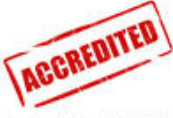
While all of these systems are reasonably effective, they are hampered by some basic flaws that lessen the value of the services that they provide. To begin with, most accrediting bodies are organized on the basis of peer review. While offering the advantages of relevance (people who are facing the same challenges and constraints), currency (active practitioners, not potentially out of date consultants) , and breadth (teams with a wide range of expertise and experience); the accreditation process is only as strong as the quality and professionalism of the people selected for the review team. I have had many Board Chairs express their concern to me that a review team consisting primarily of teachers and administrators would not only be limited in their scope in terms of understanding some of the larger issues facing a school; but would also be inclined to provide "cover" for the Head and staff by downplaying systemic or personnel shortcomings. It has also been suggested that being too immersed in independent school culture, makes it difficult to stand back and give dispassionate and balanced advice.
The second challenge that some "membership" organizations face is the fact that they consistently face a basic conflict of interest. Although they might rattle the chains sometimes and give only conditional or deferred accreditation to a school; the instances of a total withdrawal of approval are extremely rare. After all, denying accreditation also means terminating membership in the organization with the resulting loss in fees and reduction in membership numbers.
Finally, most accrediting bodies operate on a five to ten year re-accreditation cycle and we all know that that represents a huge time span in the life of a school. Leadership changes at the Board or administration level, enrolment fluctuations, a downturn in advancement revenues, etc. can all turn a school on its head in a very short period of time.
In actual fact, current accreditation systems are less about measuring school performance; administrative efficiency; and, financial sustainability and more about on-going school improvement. If Boards approach an accreditation process as developmental, rather than evaluative, then they are more likely to feel that they are getting at least some value for their investment.
Having said that, there is still a need for some arm's length assessment of the overall performance of the school to ensure that Boards can effectively exercise their oversight function. What that assessment process should look like will be the focus of my next blog entry.

 RSS Feed
RSS Feed